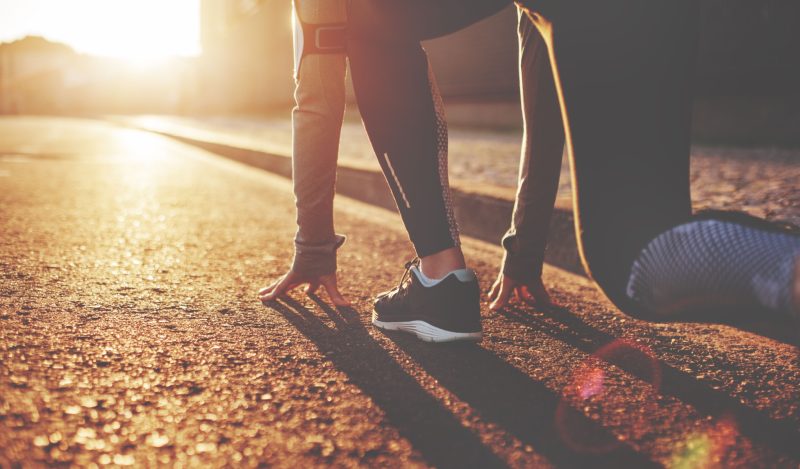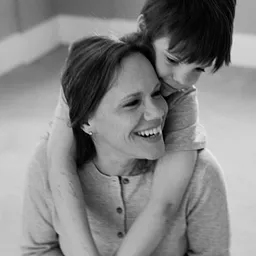I’m launching my very own athletic apparel brand today. It’s the first and only athletic brand to stand up for female athletes and women’s sports.
I moved away from home when I was fourteen to train at one of the most demanding gymnastics clubs in the country. I became the 1986 US Champion.
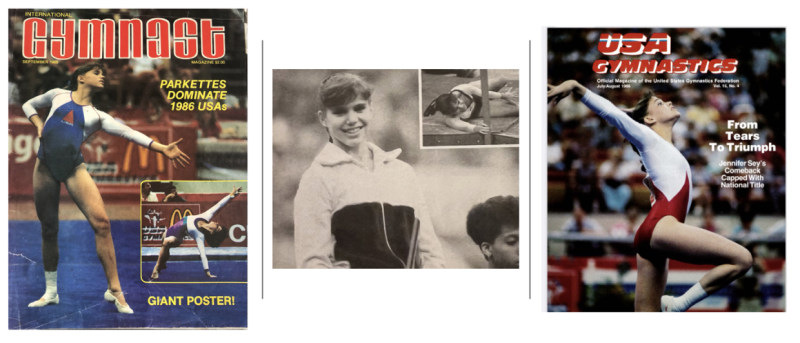

But this title came with a heavy price.
I trained 40 hours a week and subsisted on a forced starvation diet. I was publicly berated by my coaches for gaining a quarter-pound. I practiced on a broken ankle for two years. But I kept going.
Finally, beaten down to the point of suicidal ideation, I moved on from the sport and built a life outside of the gym. I started working at Levi’s in 1999 as an entry-level marketing assistant and by 2008 I became a vice president. Despite my achievements, the coaching abuse continued to haunt me.
In my attempt to make sense of what I’d endured as a child, I wrote a memoir called Chalked Up (2008). At the time, it was the only first-person account of the abusive training environment in gymnastics. And it included the first public accusation of sexual assault by the 1980’s Team USA coach, Don Peters.
Former teammates and USA Gymnastics leaders dismissed my story as that of a bitter ex-gymnast just trying to cash in. I was harassed by the CEO of USA Gymnastics (USAG) with bullying voicemails.
The gymnastics community was trying to sweep the misconduct and crimes under the rug to maintain their lucrative corporate sponsors. Their attacks strengthened my resolve.
In November 2016, Larry Nassar, the doctor for Team USA Gymnastics, was arrested on federal charges of possessing child pornography. These explosive charges revealed the toxic culture for all to see. After eight years of harassment, I was redeemed.
I was the Chief Marketing Officer (CMO) at Levi’s by this time. I was astonished that companies like AT&T and P&G were maintaining their support of USAG despite the arrest of Nassar and growing evidence that USAG had covered up Nassar’s abuse for decades.
I wrote to marketing leaders at these companies to suggest that they apply pressure by ending their sponsorship of USAG. No word back.
Moral courage isn’t a phrase that comes to mind when describing executives, despite all the ad campaigns pretending to care. They join causes when it is safe to do so. Or, simply when it is unsafe not to.
By January 2018, after Nassar was sentenced to prison for life (and post #MeToo), all of the major sponsors pulled out. These companies had pretended to champion female athletes, but when the gymnasts really needed adults to stand up for them, none did.
When I was a national team member traveling around the world with Don Peters, the 1984 Olympic Team coach now banned from the sport for allegations of sexually assaulting 3 female gymnasts, no adult stepped in.
More than 30 years later, whole companies refused to stand up for children. But these same companies were more than happy to appear to champion women’s sports in order to gain a pro-female brand reputation.
Misleading marketing is nothing new. But “woke capitalism” is. Beginning in the 2010s, companies started building their brands off of hollow “values-driven” stances. FTX founder and convicted criminal Sam Bankman-Fried built his image pushing “effective altruism.” It was a scam.
Some companies do it more skillfully – and legally. Nike is a prime example.
While pretending to celebrate women in their ad campaigns, Nike treats women with astonishing disrespect.
In 2018, there was a revolt by female executives at Nike claiming sexual harassment was widespread at the company. A dossier was left on then-CEO Mark Parker’s desk with accounts of staff outings at strip clubs, a leader attempting to forcibly kiss a female employee, and human resources brushing off the claims.
In 2019, Allyson Felix, 7-time Olympic gold medalist in track and field, published her story of gender discrimination at Nike. Felix was one of Nike’s most marketed athletes and when she went into renewed contract negotiations after having a child, she attempted to secure maternity protections. The company offered 70% less than her prior contract and refused to include maternity leave stipulations.
In November 2019, Mary Cain shared her story of abuse in Nike’s Oregon Running Project. Cain joined the training club when she was 17 and was the youngest track and field athlete to have ever made a World Championship team. By the time she left the club 4 years later, her performance had declined due to bullying coaching practices and fat-shaming, which led to an eating disorder that caused her body to break down.
I interviewed at Nike in 2011. I was honored to be recruited by their global head of talent. I loved their company’s mission statement – if you have a body you’re an athlete – and I admired their If You Let Me Play ad which featured portraits of young girls interspersed with powerful statistics about the benefits of participation in sports. It was culture-making.
I was not offered a job and I was disappointed. But also angry. In my full day of interviews, every male executive I spoke with was more arrogant than the one before. I nodded along to their stories of weekend-warrior half-marathons. But apparently mere mention of my legitimate and officially recognized title and athletic background was perceived as arrogance and out of step with their “culture.”
Nike doesn’t respect women or female athletes. Just last year they hired trans superstar influencer Dylan Mulvaney to model sports bras despite the fact that Mulvaney is not an athlete and appears not to have breasts.
Nike made this choice while a heated debate is raging about males competing in women’s sports, brought to the public’s attention in 2022, when trans swimmer Lia Thomas tied Riley Gaines at the NCAA Championships in the 200 Freestyle. Gaines was then told she needed to let Thomas accept the trophy on the awards stand.
Nike chose wokeness over women.
Despite trans activists claiming that including trans-identified males in women’s sports must be done in the name of inclusivity and that it involves such a small number of athletes that it can’t possibly make a difference, there have been too many examples to count of trans athletes competing – and winning – in women’s sports. And sometimes injuring women in basketball, volleyball and rugby.
Anyone who challenges the unfairness and danger is smeared as a transphobe. But allowing males to compete in women’s sports is abuse of women under the guise of inclusion. Insisting that women stand down to make way for the wishes of biological males is sexism. Still, brands claiming to champion female athletes continue to hire trans-identified males in place of women.
In 2022, Lululemon hired non-binary professional runner Nikki Hiltz as a brand ambassador.
Last year, champion surfer Bethany Hamilton left Rip Curl with three years and seven figures left on her contract. It happened after she publicly opposed the World Surf League’s policy to include trans athletes in the women’s category. In January 2024, Rip Curl hired trans surfer Sasha Lowerson to promote women’s surfing.
Trans-identified males are taking medals, team berths, and sponsorship dollars away from women. And not a single athletic brand is standing up for the protection of women’s sports.
Despite the lack of moral courage amongst corporate executives, I believe brands can further positive ideas in the culture. Dove mainstreamed body positivity with their Real Beauty campaign. Nike made us believe we were all athletes.
And so now, I am launching the first athletic brand to stand up for women’s sports. It’s called XX-XY Athletics and we hope to start a movement of truth-telling and bravery.
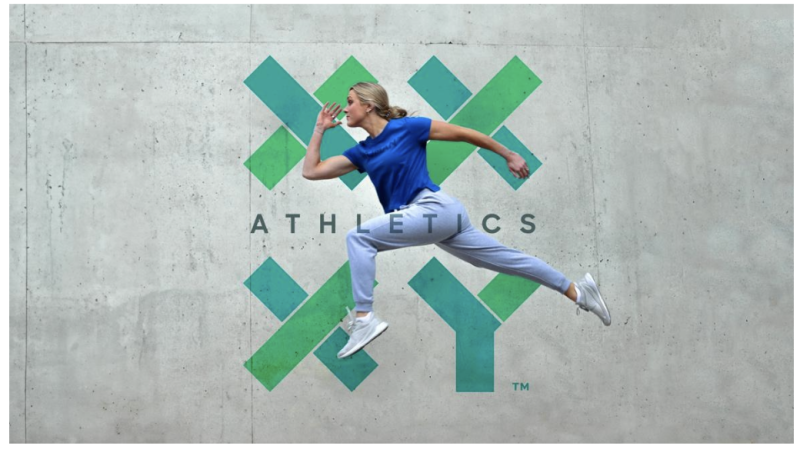

Allowing trans-identified male athletes to compete in women’s sports is based on a lie –that males are not stronger and faster than females. If we carry this lie through to its conclusion, there will be no sex-based categories in sports.
We cannot let that happen.
I believe truth matters and that women deserve safety and fairness. We deserve equality of opportunity. We deserve to compete. And we deserve the chance to win.
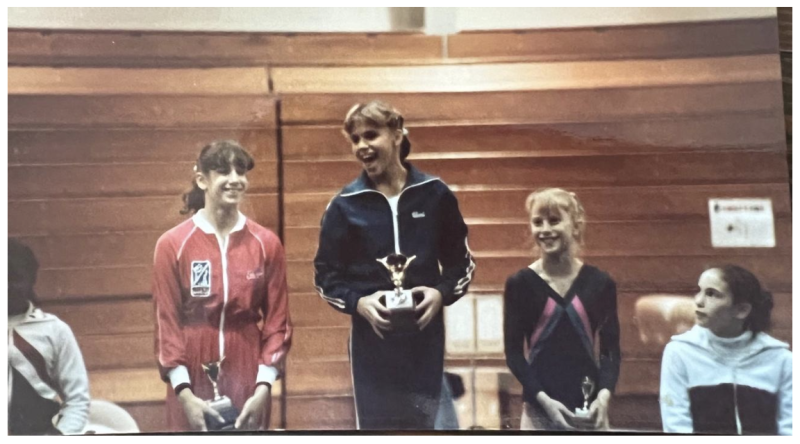

We are not anti-trans. We are pro-woman. And we believe everyone deserves the chance to play fairly.
The vast majority of Americans agree. But most are too afraid to speak up and be smeared as a bigot. I hope this brand – designed for and by women – can inspire the silent majority to stand up for women and girls. Our fans will know that when they join us, they’ll get the very best athletic clothing and they will not stand alone.
To learn more, watch our launch video here. And our launch ad here.
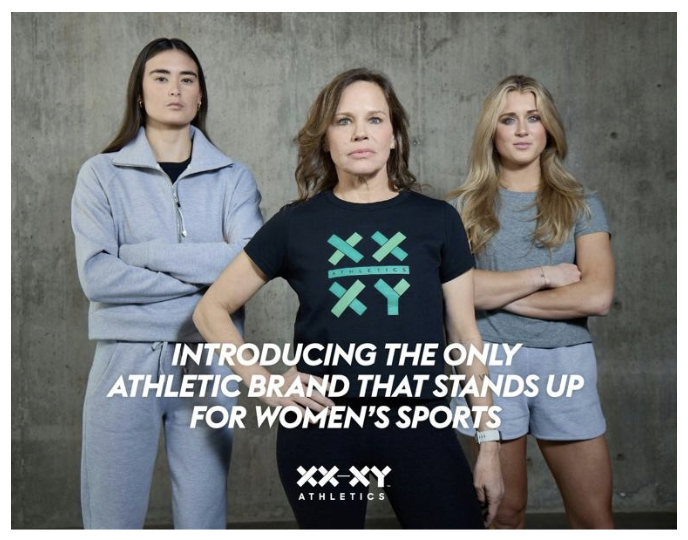

Visit our store at www.xx-xyathletics.com
Join the conversation:


Published under a Creative Commons Attribution 4.0 International License
For reprints, please set the canonical link back to the original Brownstone Institute Article and Author.
